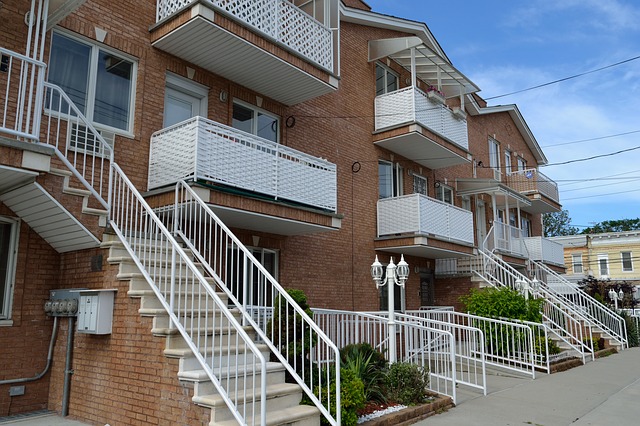How It’s Actually Possible to Start Selling Rental Property Today
If you’re a real estate agent who is not selling income property at least some portion of the time, you’re missing one of the greatest opportunities offered to real estate professionals to make money .
Moreover, I’m convinced that any real estate agent (new to real estate investing or not) can sell rental income property by learning just a few basics.
Hey, when I started in real estate, I made the jump from residential real estate to income property sales almost immediately. Just six months into my real estate career I sold a shopping center and made a $24,000 commission…and I knew less about real estate investing then what you’re about to discover in this article.
But I digress.
The point is that you don’t have to become a commercial real estate specialist to sell rental property. Yes, commercial expertise is necessary to service some properties, e.g., leasing, but ordinary real estate agents can typically handle multifamily property transactions quite successfully, and generally do when they want to. That’s how I did it, and so can you.
Moreover, don’t sell yourself short. If you’re a real estate agent, then you are certainly in a great position to work with income property sellers and buyers. Remember what we learned about real estate, that it’s a “contact sport”. Think about it. Investors walk and call in to real estate offices, are previous customers, relatives, friends, and neighbors. In truth, we’re surrounded by potential real estate investment customers.
Finally, strike the thought that any effort you make to sell rental property won’t be worth it. The untold secret about investment property, what others would not want you to discover, is that real estate investors typically purchase more than one property over time. Moreover, unlike home buyers (who purchase one house), real estate investors are known to purchase multiple properties plus, are often willing to sell for the “right price” because there’s no emotional attachment like with a home.
In other words, when you get the opportunity to work with one investor on one transaction, you potentially are setting the stage for multiple transactions.
Okay, now let’s go down the list.
1) Make the Decision
Foremost, decide to make some portion of your real estate business investment business. You don’t have to sacrifice residential. If you want to keep selling houses, great, just don’t get started with rental property half-heartedly. If you need an incentive, bear in mind that investment properties can easily generate multi-million dollar transactions equal to three or four residential transactions; therefore, a golden opportunity to bolster your annual earnings in this troubled housing market.
2) Learn the Basics
Unlike residential property, where amenities like kitchen size and school district are important to buyers, other than how they impact rents, amenities generally mean little to those who buy investment property. Real estate investing is about the numbers.
As such, investors are less concerned about an agent’s style and panache than they are with the agent’s ability to discuss investment property and provide timely numbers. It’s not about Armani and Mercedes. Listen. When an investor asks, “What’s the property’s cap rate?” and you have the answer, that’s all you need to start making the right kind of favorable impression that will keep the investor from dumping you for your competition.
At the very least know the difference between capitalization rate and gross rent multiplier and be able to create an APOD. There are numerous websites devoted to real estate investment definitions and formulas where you can learn what you need easily, including my website.
3) Tool Up
Investing a few dollars for quality real estate investment software that enables you to create cash flow, rates of return, and profitability presentations is one of the best tools you can procure for real estate investing, bar none. Here’s why.
Foremost, it makes a statement to investors that you work with rental income property. Presenting quality reports with concise financial data suggests to investors that you’re serious about investment property, can assist in a sound buying decision, and might genuinely care about how the investor spends his or her money. It’s about winning investor confidence.
Secondly, it tells your colleagues that you work with rental income property. This benefits your business because it gives you income property credibility and in turn can lead to additional referral business.
Thirdly, you can learn about rental income property. Almost by default, the formulas, returns, and reports generated in real estate investment software tend to rub off. It’s as a customer of mine remarked, that my software contains everything about real estate investing it took him 15 years to learn. You get the idea.
4) Prepare
You’re making a crucial mistake if you wait until you’re confronted by an investor to learn the terms or buy the software. Urgency is always an issue when investors make the decision to buy or sell investment property, and if they see you pause or scramble for answers, they’re not going to have qualms about calling someone else. Winning or losing a sale often rests solely on the perception a customer develops within seconds during the first encounter. Don’t blow it.
5) Promote
Finally, let people know that you work with multifamily property. Foremost, call your residential customers and ask whether they’ve considered investing in real estate. Remember, investors are homeowners. Tell your relatives and friends. Obviously, the more people that know you’re prepared and equipped to do a real estate analysis and run rates of return for them, the better. I’m preaching to the choir, here, of course, but I can’t emphasize enough the impact your preparation for investment real estate will have on others.
Here’s to your success
